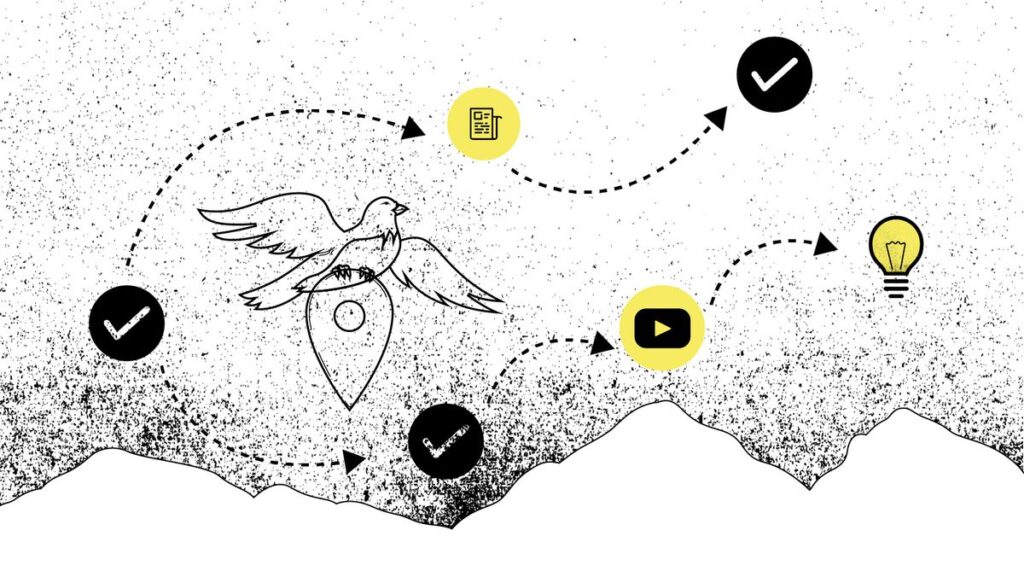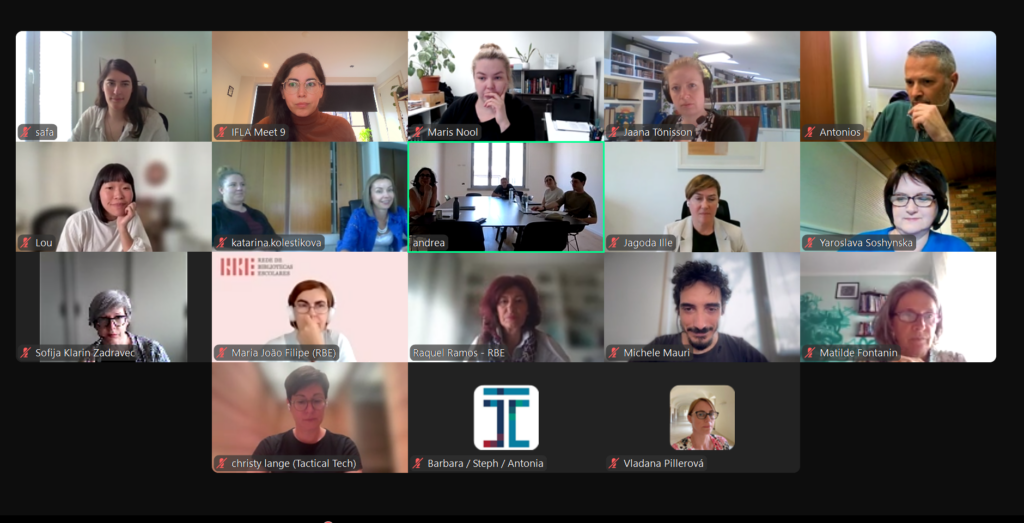Highlighting the role of our 2024 MIL initiatives during the Global Media and Information Literacy week
29 October 2024
 As in previous years, we commemorate and celebrate the importance of the Global Media and Information Literacy week that is taking place this year from the 24th to the 31st of October. This year was not an exception for libraries to continue playing a significant role in promoting skills, helping people of all ages and backgrounds navigate misinformation, think critically about media content and understand the influence of media on public perception.
As in previous years, we commemorate and celebrate the importance of the Global Media and Information Literacy week that is taking place this year from the 24th to the 31st of October. This year was not an exception for libraries to continue playing a significant role in promoting skills, helping people of all ages and backgrounds navigate misinformation, think critically about media content and understand the influence of media on public perception.
Globally, libraries are increasingly integrating media literacy initiatives as part of broader information literacy frameworks. With the rise of generative AI, the spread of misinformation has become more complex, amplifying the urgency of digital literacy tools for communities worldwide. The role of libraries as trustworthy information hubs has become critical in empowering communities, particularly those who do not have Internet access, to stay informed and resilient against AI-driven and other misinformation threats.
This year we want to look back to the MLCE and MILSR initiatives that are being implemented to contribute to that purpose.
The Media Literacy Case for Educators project (MLCE), provides teachers, trainers and librarians across Europe with a comprehensive set of creative tools, resources, methods and materials. The MLCE project was born from the idea of knowing that many educators worldwide are currently leading in spreading awareness about the benefits and potential risks of technologies. From schools to libraries to cultural centers, educators are equipping students of all ages with the knowledge and skills they need to navigate the digital landscape with ease.
The project’s initiative was named ‘Everywhere, all the time’ and, as above mentioned, consists of a series of resources co developed with 300 individuals and 100 educators worldwide, the initiative implemented in schools and libraries trained over 70 facilitators, provided a MOOC for about 1,400 participants and hosted hundreds of visitors to the poster exhibitions via library spaces.
The Media Literacy for Societal Resilience (MILSR) project, has a similar focus but specifically aims to enhance societal resilience by equipping libraries across Europe with the skills, tolls and resources needed to be effective, innovative, future-fit advocates and facilitators for MIL. This initiative called ‘Supercharged by AI’ is currently being implemented in 50 libraries across Europe and consists of an interactive large scale exhibition and a series of workshops addressing the themes of misinformation, scams, amplification of bias via AI, online harassment, stereotyping and online radicalization. This new creative intervention explores the amplification of these problems through AI and invites individuals to think critically on possible solutions.

Reflecting on these two initiatives, helps us identify critical lessons and ongoing challenges in promoting digital literacy globally. Some key learnings of these initiatives include the following:
- Even with a robust toolkit, the rapidly evolving media and digital landscape, requires ongoing training and adaptable resources. Educators and librarians needs continuous updates and support to effectively address these shifting challenges.
- Underserved communities and marginalized populations are not exempt from being interested in MIL initiatives. Although lack of basic digital skills can be an impediment to their participation in these initiatives. Individuals who lack private Internet access benefit most from programs such as this one that help them feel integrated into their communities and seek alternatives to better education and employment opportunities.
- Libraries are anchor community institutions that offer a safe and trusted space for learning. National and local governments should facilitate partnerships between libraries, organizations, educational institutions and technology experts to fund and coordinate MIL projects. The formal integration of MIL into national education standards can also be reinforced through libraries across countries.
- Both participants and facilitators of these initiatives have reported benefitting from the MIL acquired skills not just via the direct benefit of the shared content but also indirectly as they mentioned many intersecting topics in their own fields that are continuously reinforced as they learn more about media literacy and become advocates themselves. A lot of them reported feeling more confident when addressing these themes in different contexts which made it easier to find relatable examples to discuss with their community audiences.